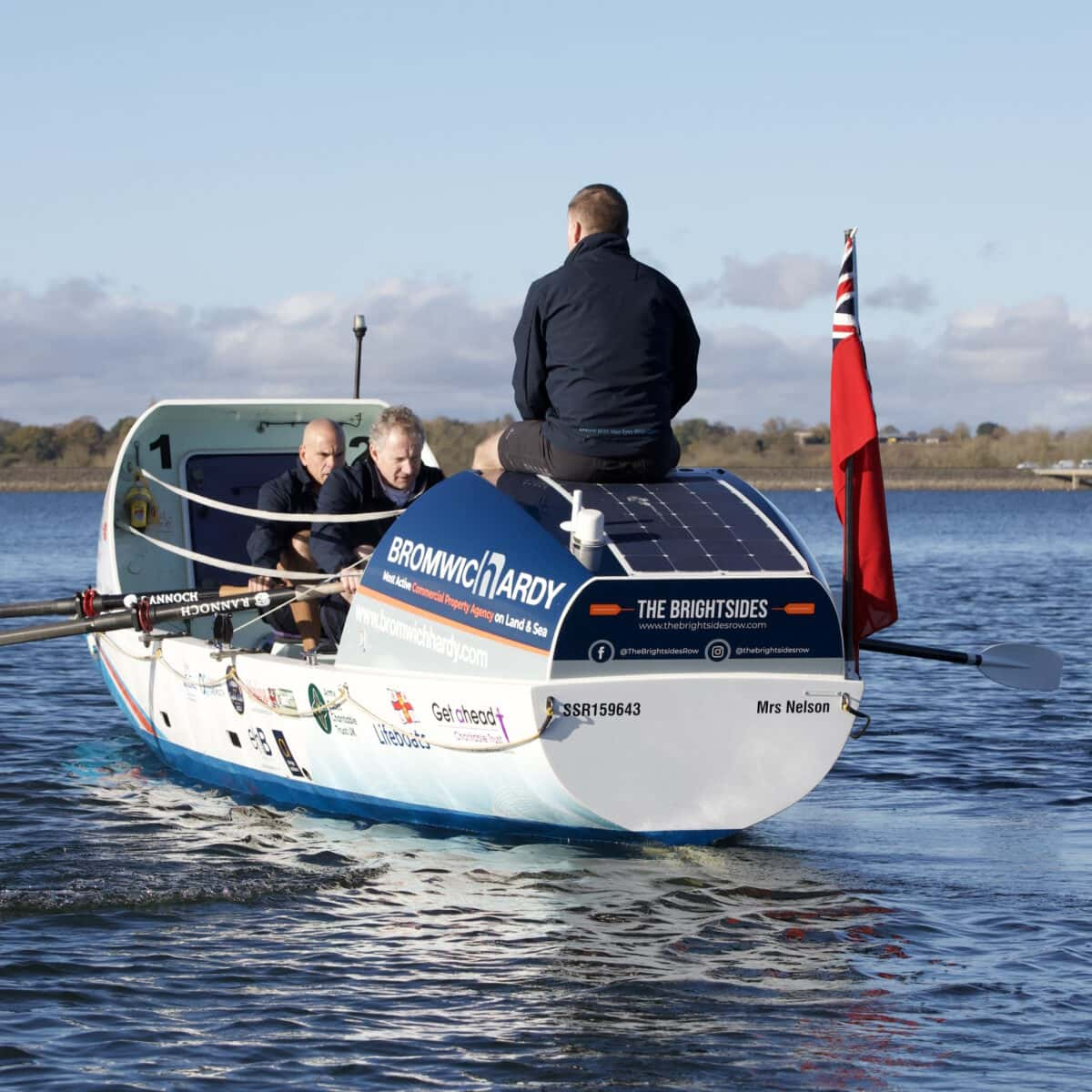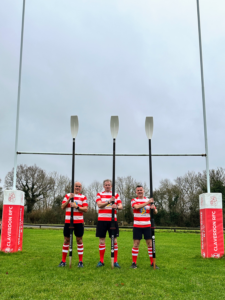
27 Jan 2023
The Brightsides epic adventure to row across the Atlantic
World Rowing spoke to Duncan Nealon and Rod Adlington, who, alongside third crewmate Daz Ariss, are preparing to take on the epic row across the Atlantic Ocean despite having minimal rowing experience.
Consider crossing 3000 miles of stormy Atlantic unsupported, with only six months of water rowing experience and an average crew age of 52, and only then can the sense of the scale of the feat be imagined. Yet, that is exactly what the Brightsides crew intend to do in early 2024.
It takes a special bond and purpose to want to take on the pinnacle of rowing challenges. More people have climbed Mount Everest than dare brave the 40-foot waves, approximately 1.5 million oar strokes and six-week journey between Gran Canarias and Port St Charles in Barbados.
Yet a bond they do have. Duncan Nealon, Rod Adlington and Daz Ariss have known each other for three decades, a friendship forged on the muddy rugby field. Each adventurer has already shown strong credentials, Nealon is a sub-three-hour marathon runner, Ariss is an army veteran who completed the 400-mile Polar Challenge and Adlington is a seasoned sailor, comfortable with the untameable ocean waters.
The team’s “soul” centres around a worthy purpose. Adlington’s son, Barney, tragically passed away from Meningitis aged just three. “When one of your mates – faces loss, it really binds you closer together,” says Nealon.
The crew has since been spurred to fundraise prodigiously. However, having participated in countless different events, they wanted to do something different. “I always fancied having a go at rowing, having watched [legendary Olympians] Redgrave and Pinsent”, says Nealon.
In that spirit, they have set an ambitious target of fundraising £250 000 for Meningitis Now alongside the cancer charity Get A-Head, Lifeboats and the Army Cadet Charitable Trust. The crew’s name, The Brightsides, is also a tribute to Barney’s favourite song Mr Brightside.
To ensure every penny raised goes to worthy causes, they have self-funded the expedition, which is costing at least £65K, including purchasing ‘Mrs Nelson’, a 28-foot Rannoch R45 Ocean rowing – with five successful crossings already. The team’s entrepreneurial flair has also helped secure sponsorships from local businesses: Bromwich Hardy, Lifeline Fire Extinguishers and EHB residential property. They are also inviting supporters to have their names etched onto the design of the boat in exchange for a small donation.
 To maximise success, each rower has defined roles. Adlington, with plenty of boating and engineering experience, is the skipper and navigator. Ariss, as a former army signaller, is in charge of communications. With 45 marathons and ultra-marathons completed, Nealon knows endurance nutrition and is leads on nutrition to maximise calories with minimum weight and storage.
To maximise success, each rower has defined roles. Adlington, with plenty of boating and engineering experience, is the skipper and navigator. Ariss, as a former army signaller, is in charge of communications. With 45 marathons and ultra-marathons completed, Nealon knows endurance nutrition and is leads on nutrition to maximise calories with minimum weight and storage.
The team’s health is being transformed in preparation. “I virtually stopped drinking”, chuckled Adlington, “I am eating more healthily with a nutrition diary and even have my daughter helping me.” The training is also being fit around their busy work schedules, with remotely guided ergo and weight sessions during the week and water rowing together by the coast or reservoir at the weekends, overseen by Dunc Roy, with personal training support from Gus Barton and weather routing from Angus Collins. “Training is pretty hard near the UK, with the brutal tides,” says Nealon.
It is clear that the Brightsides are buzzing with anticipation for their largest adventure yet. They have even arranged for a signed rugby ball at the finish line to greet them.
Nevertheless, the team are realistic about the practical challenges ahead. Nealon cited Marlin strikes as a worry, where 2000-pound (907 kg), 12-foot (3.65 m) spear-nosed fish could fatally skewer a passing boat. Their crewmate Ariss is also prone to seasickness, which during high winds, will make Mrs Nelson feel like a tumble dryer. Adlington’s concern includes misreading his body. Last year, he overtrained and broke a rib. Ariss’s skills as a trained medic may well be needed, with the journey demanding total self-reliance, whether dealing with injury or a mechanical fault. There will also be sleep deprivation, “we have three shift patterns depending on the weather, aiming to row 14 hours each day on average,” says Adlington.
Reflecting on their journey so far in learning a new sport, Nealon says, “Rowing is like a vomit machine. It is very humbling. To learn a new skill at the age of 45 or 56 is amazing. We are novice rowers trying to democratise the sport. We want people to see us as normal people. If we can do it – anyone can”.
World Rowing wishes them all the best as they prepare for the challenge of their lives. To follow their journey – take a look at their website here.

